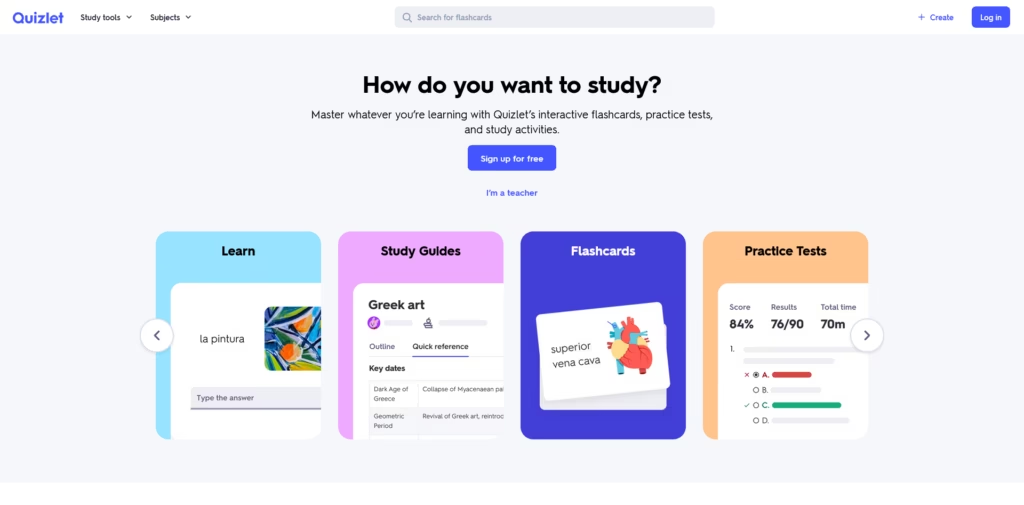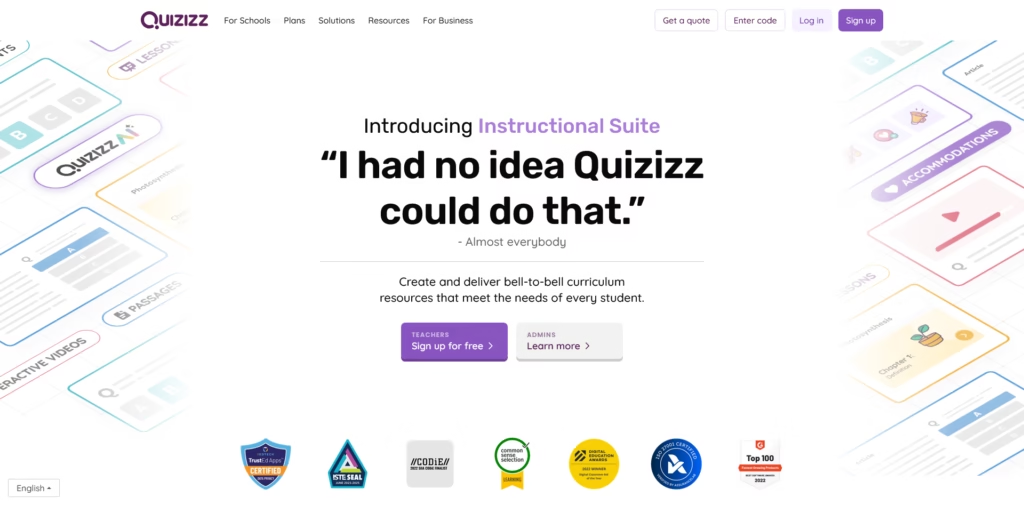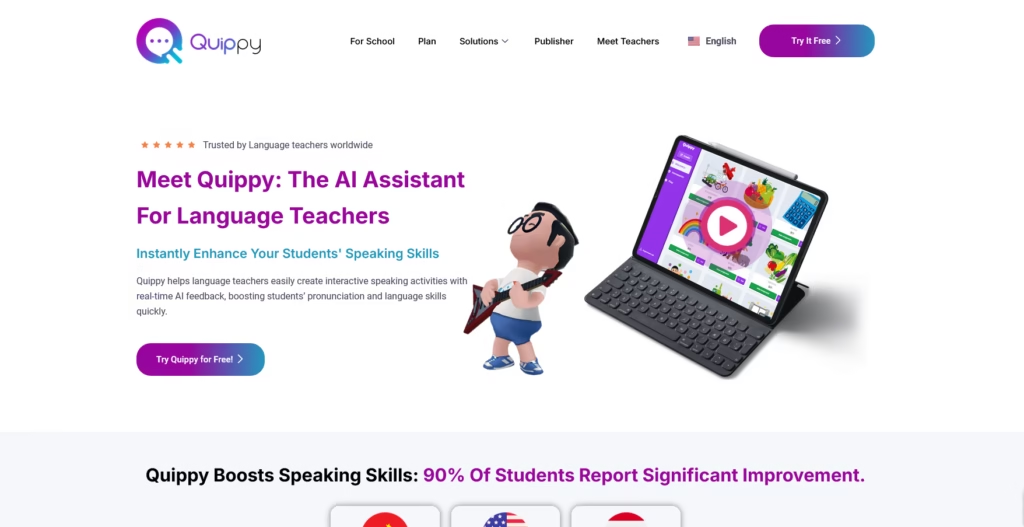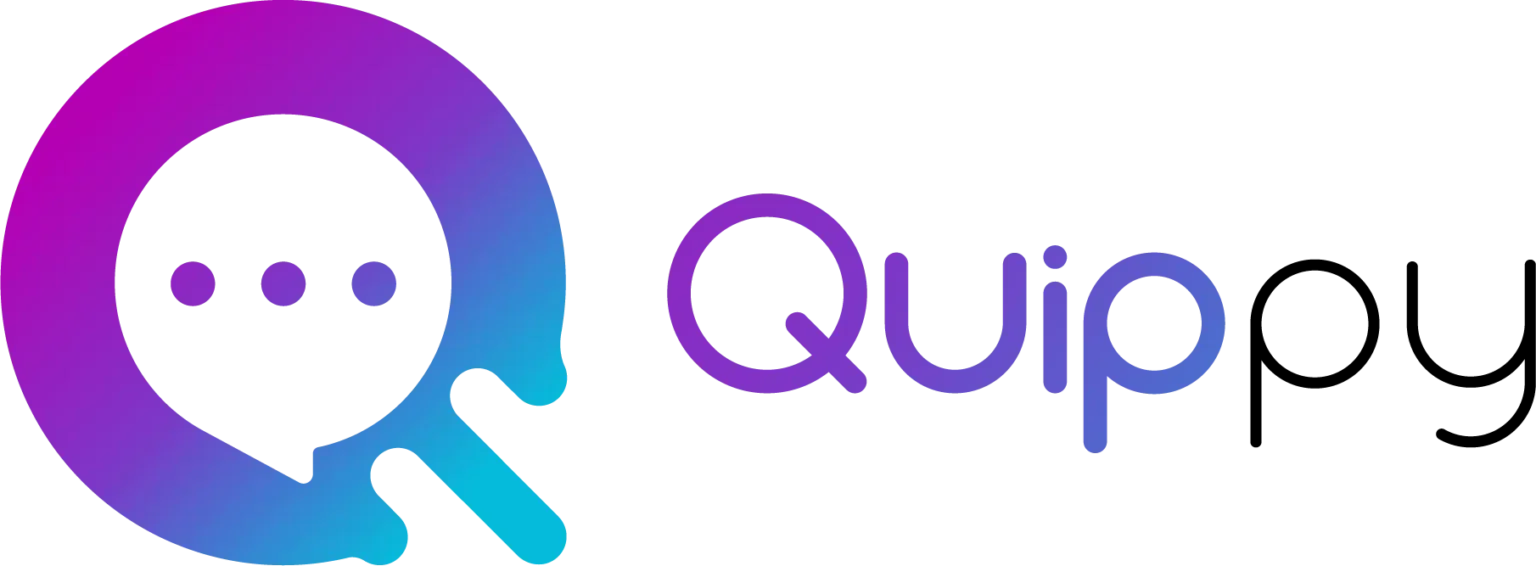When it comes to language learning, leveraging the right tools can make a significant difference in your progress. Flashcard platforms are among the most effective tools for reinforcing vocabulary and concepts. In this blog, we’ll compare three popular platforms: Quizlet, Quizizz, and Quippy. Each offers unique features tailored to different learning styles and needs.
1. Quizlet

Overview: Quizlet is one of the most well-known flashcard platforms available. It allows users to create their own flashcards or choose from millions of sets created by others.
Key Features:
- Custom Flashcards: Create personalized flashcards with text, images, and audio.
- Study Modes: Includes options like Learn, Write, Spell, and Test, catering to various learning preferences.
- Games: Engages learners with interactive games such as Match and Gravity.
- Collaboration: Share sets and study with friends or classmates.
- Mobile Access: Apps available on iOS and Android for on-the-go learning.
Pros:
- Extensive library of user-generated content.
- Variety of study modes and interactive games.
- Easy to use and widely adopted.
Cons:
- The free version has limitations; some advanced features require a subscription.
- Lack of advanced speech recognition features.
Best For: Learners who need a versatile platform with a broad range of study methods and extensive content.
2. Quizizz

Overview: Quizizz offers a more gamified approach to learning, turning quizzes into interactive games that can be used for both individual study and classroom settings.
Key Features:
- Interactive Quizzes: Create or choose from pre-made quizzes that can be played live or asynchronously.
- Game-Based Learning: Quizzes are designed like games with leaderboards, rewards, and timed questions.
- Reports and Analytics: Track progress and performance with detailed reports.
- Integration: Integrates with various educational tools and platforms.
Pros:
- Engaging and fun learning experience with a game-like interface.
- Useful for both individual learning and classroom settings.
- Strong analytics for tracking performance.
Cons:
- Less emphasis on traditional flashcards; more focused on quiz-based learning.
- Limited support for in-depth vocabulary practice.
Best For: Learners and educators who prefer a game-based approach to reinforce knowledge and track progress.
3. Quippy

Overview: Quippy stands out for its focus on language learning with advanced features tailored to improving speaking skills.
Key Features:
- Speech Recognition: Provides real-time feedback on pronunciation and speaking skills.
- AI Integration: Offers AI-powered suggestions and practice based on individual performance.
- Classroom Tools: Includes features for assigning homework, tracking progress, and generating detailed reports.
- Interactive Exercises: Engages learners with various speaking exercises and interactive activities.
Pros:
- Advanced speech recognition for targeted language practice.
- AI-driven feedback and personalized learning paths.
- Comprehensive tools for teachers and learners to track progress.
Cons:
- Newer to the market, so it may have fewer user-generated resources compared to established platforms.
- Might be more specialized, focusing primarily on language learning.
Best For: Learners and educators looking for a comprehensive language learning tool with a strong emphasis on speaking skills and AI-driven feedback.
Conclusion
Choosing the right flashcard platform depends on your learning goals and preferences. Quizlet offers a versatile and user-friendly experience with extensive content and study modes. Quizizz adds a gamified twist, making learning engaging and interactive. Quippy provides a specialized focus on language learning with advanced speech recognition and AI features, ideal for those wanting to improve their speaking skills.
Each platform has its strengths, so consider what features align best with your learning style or teaching needs. Whether you’re looking for broad content, interactive quizzes, or specialized language practice, there’s a flashcard tool to match your needs.







